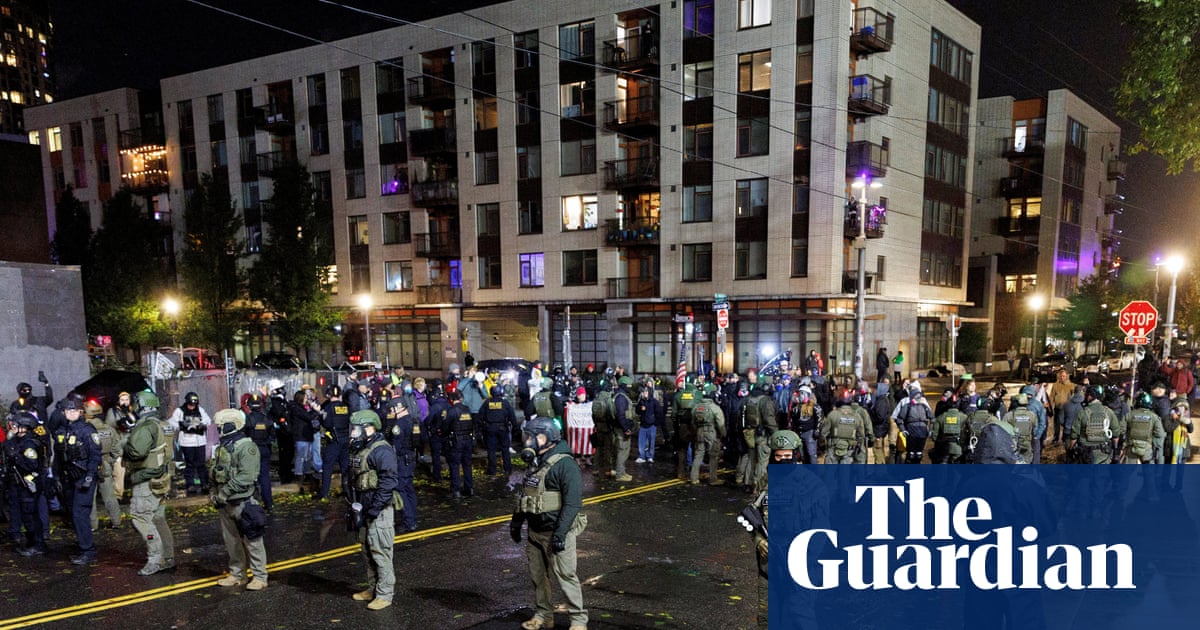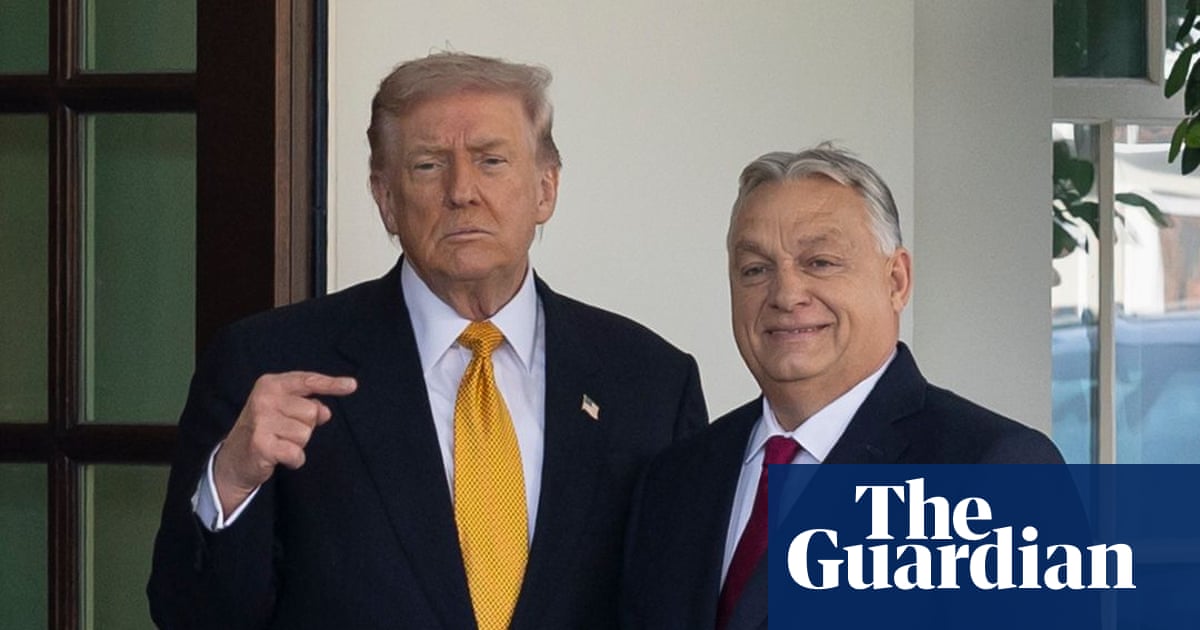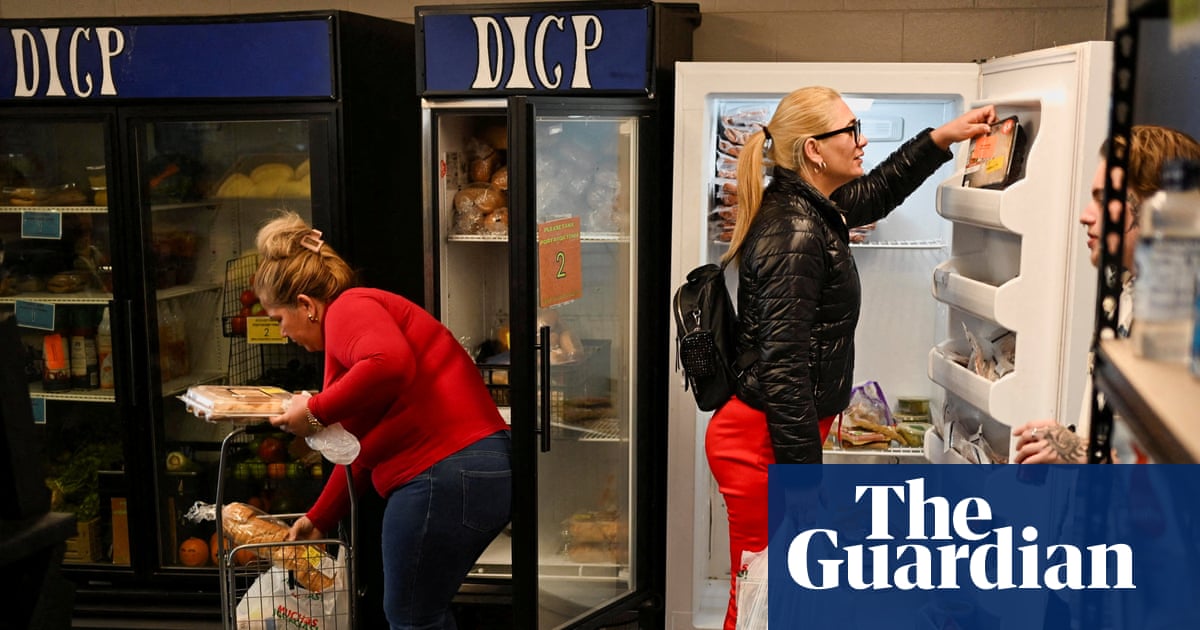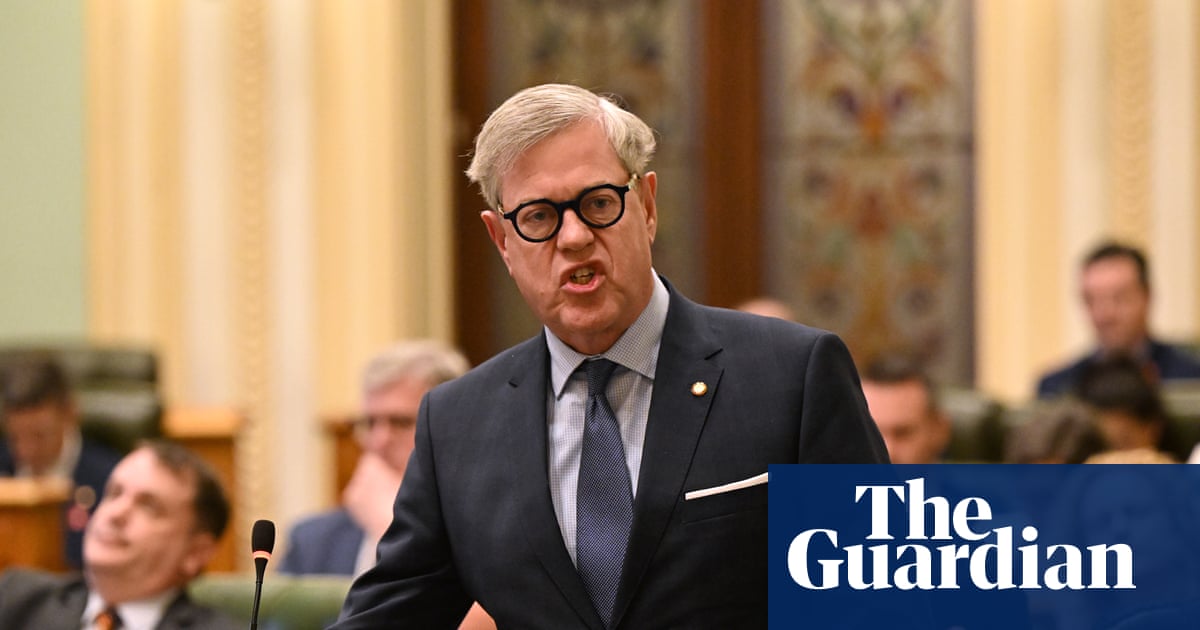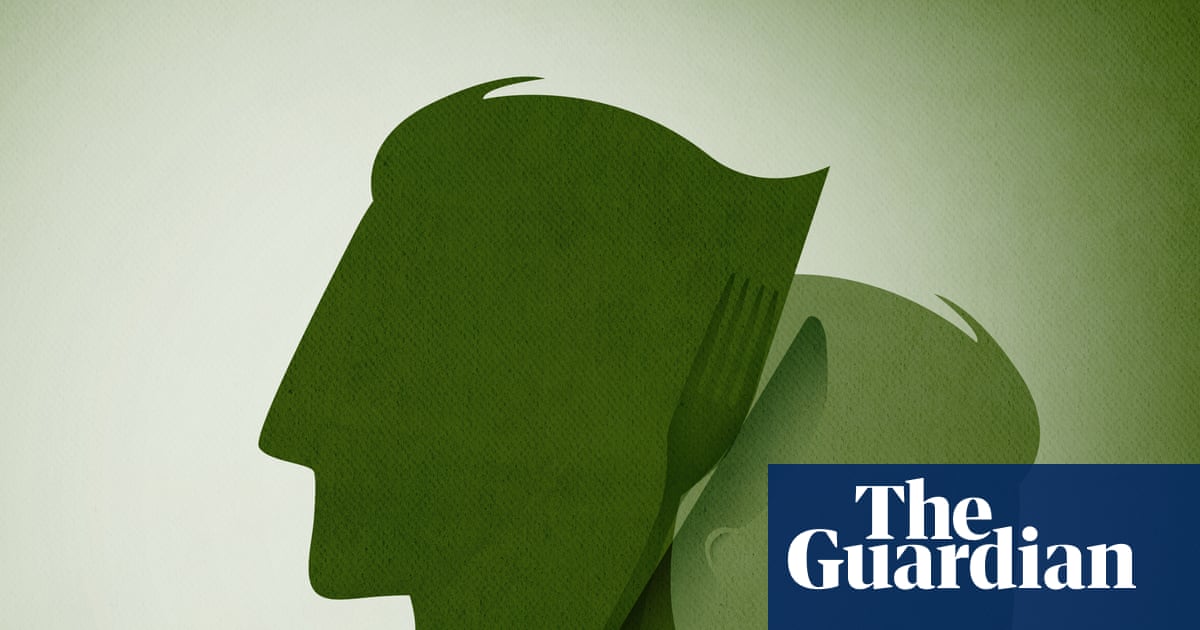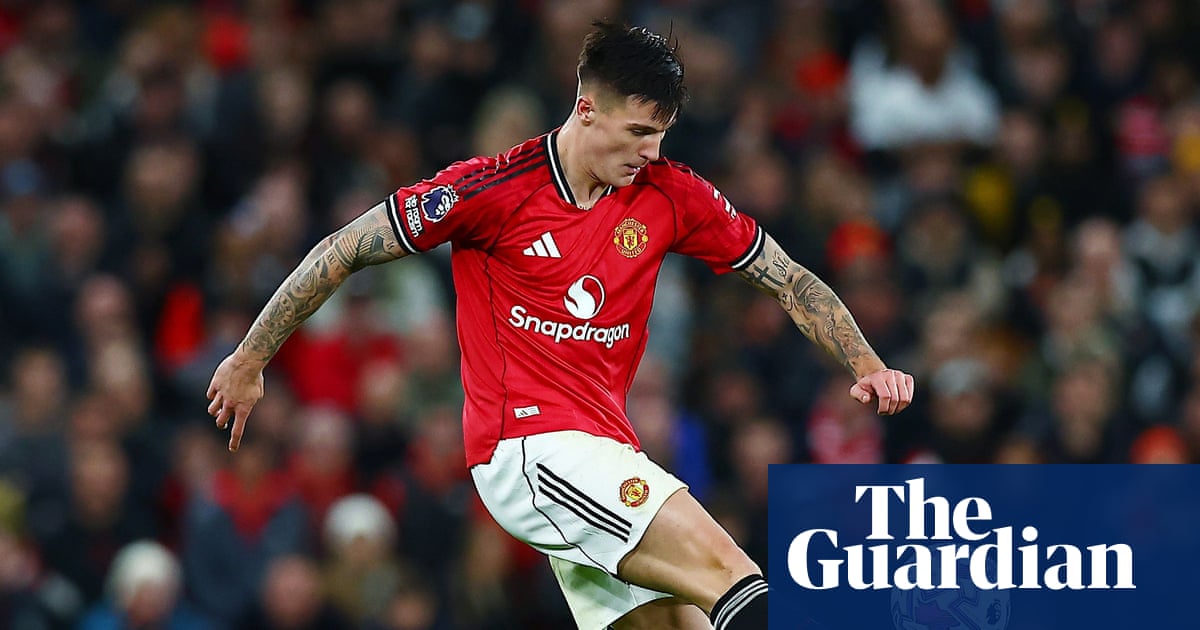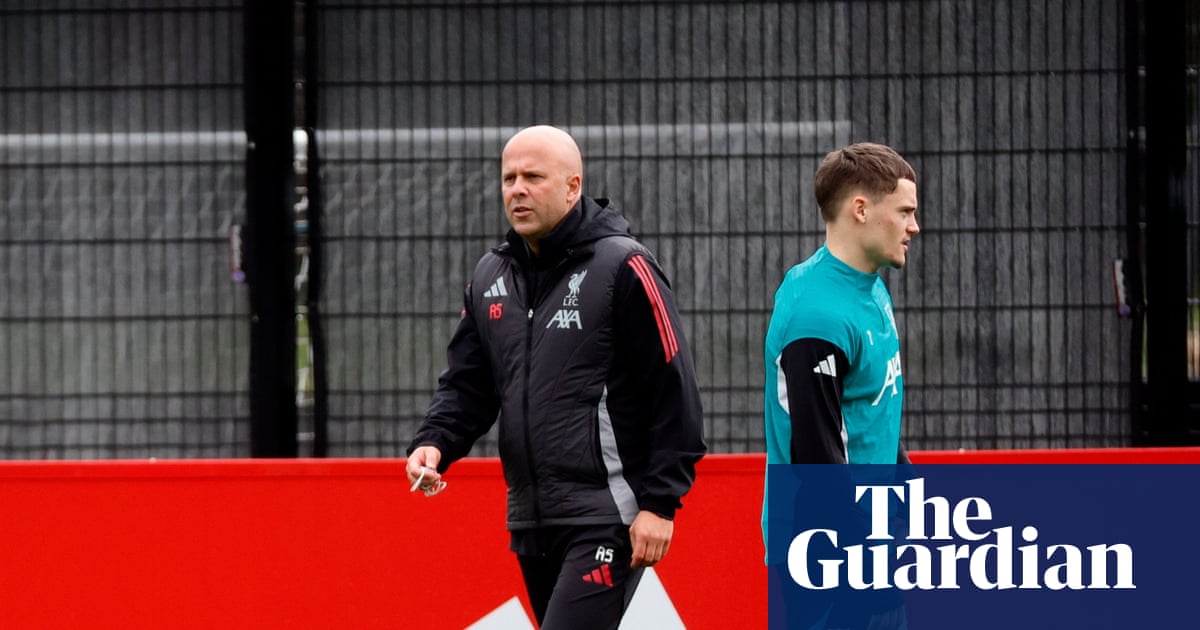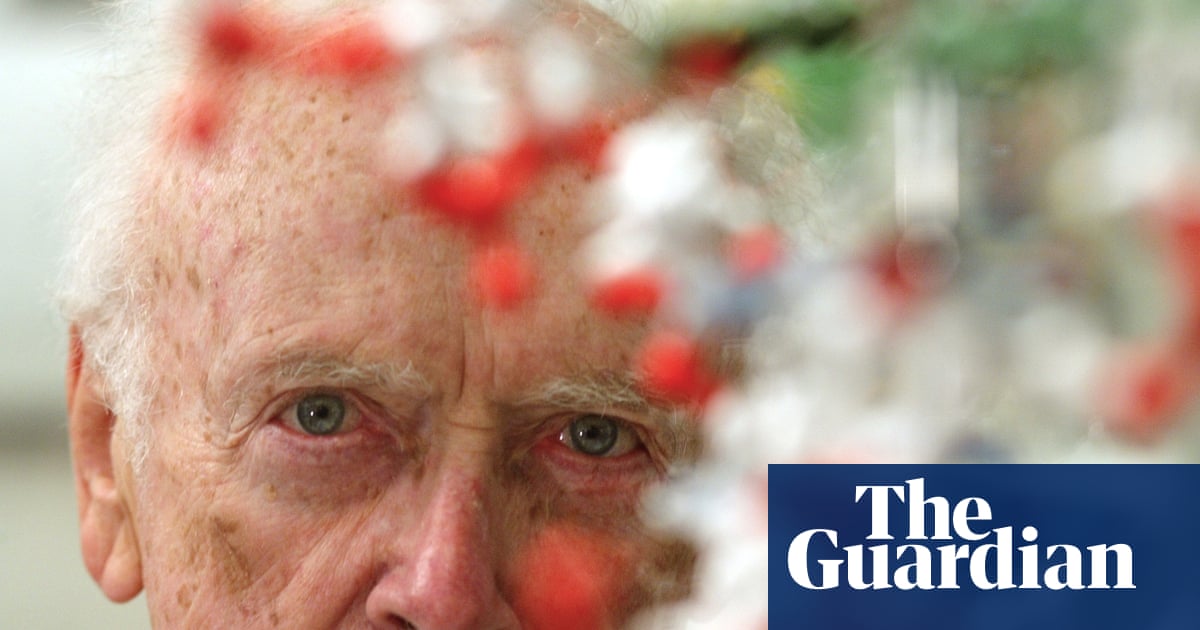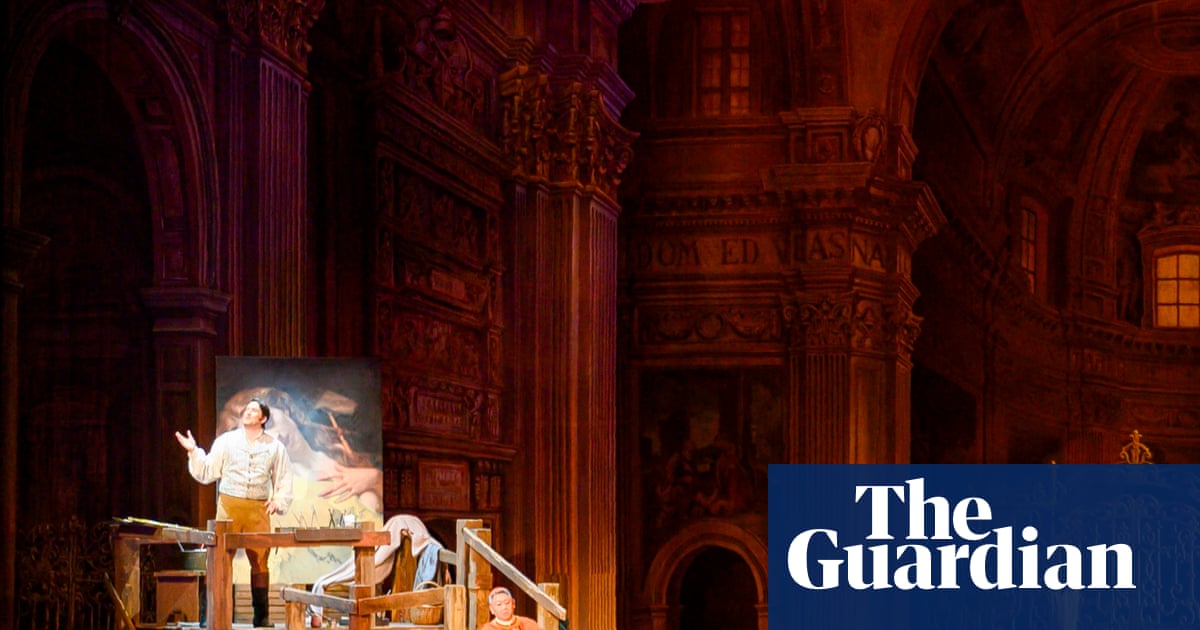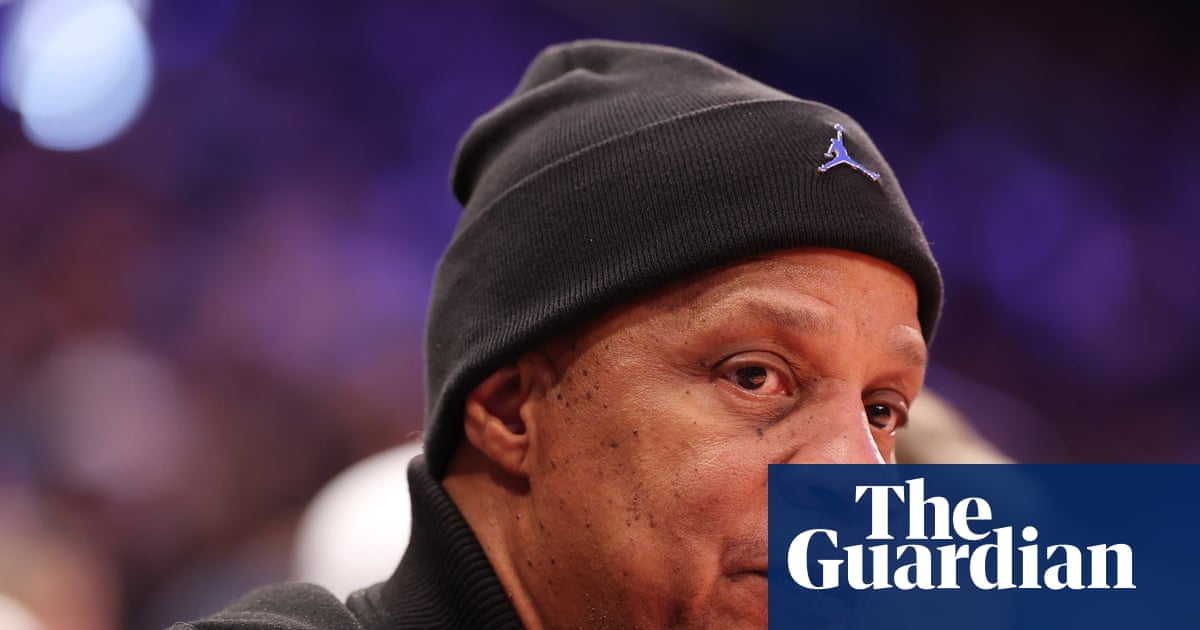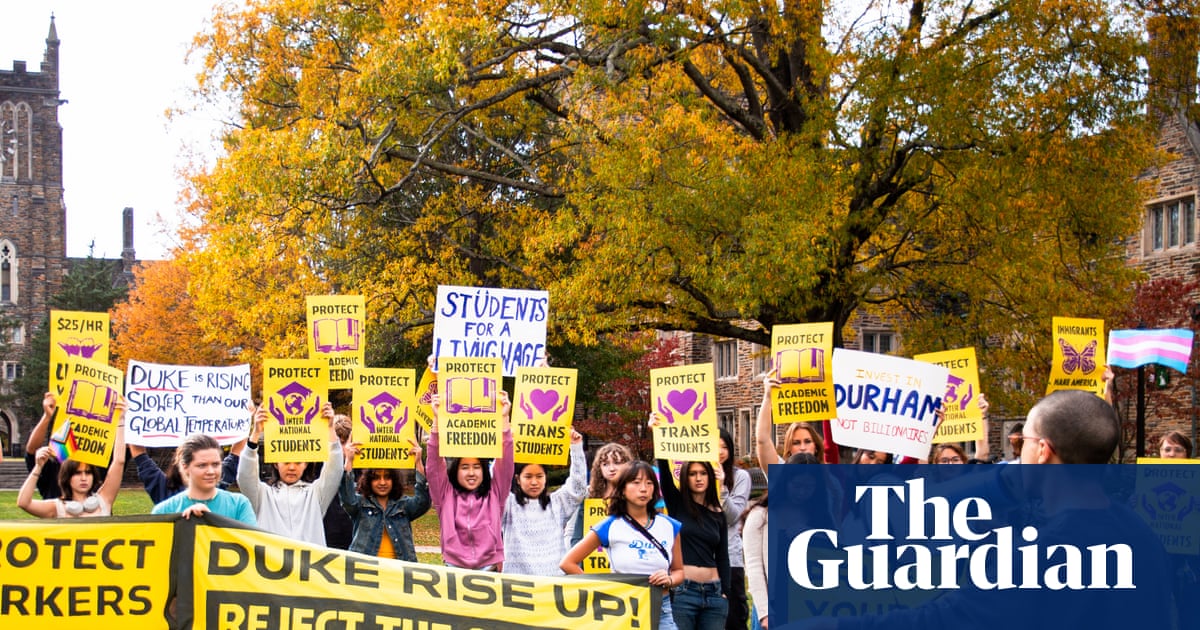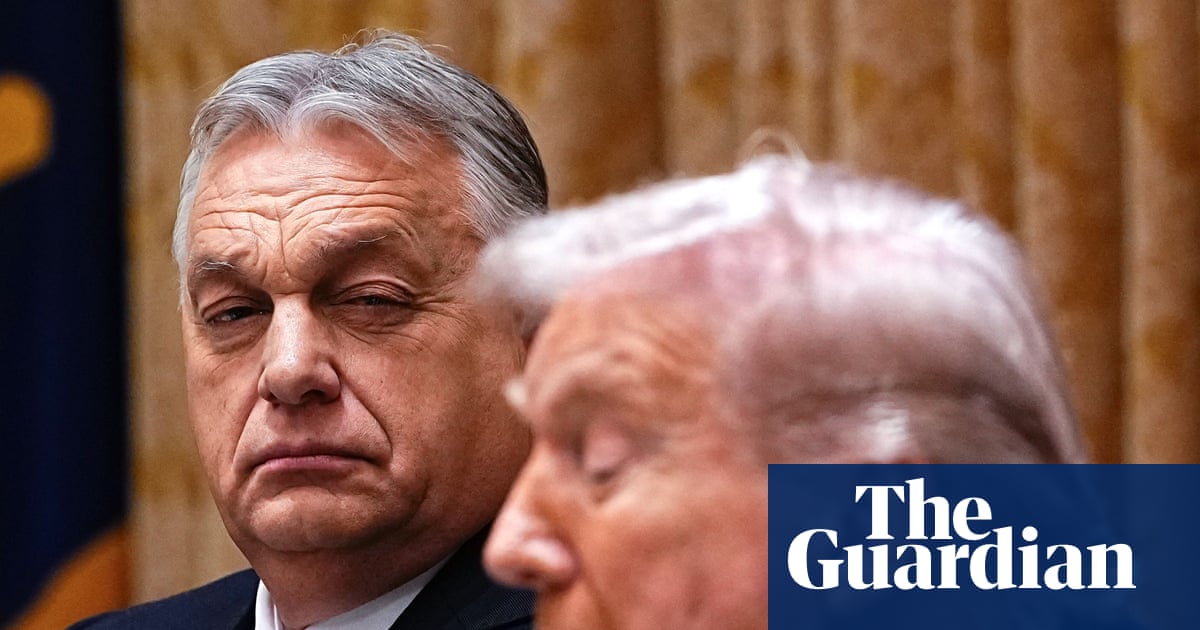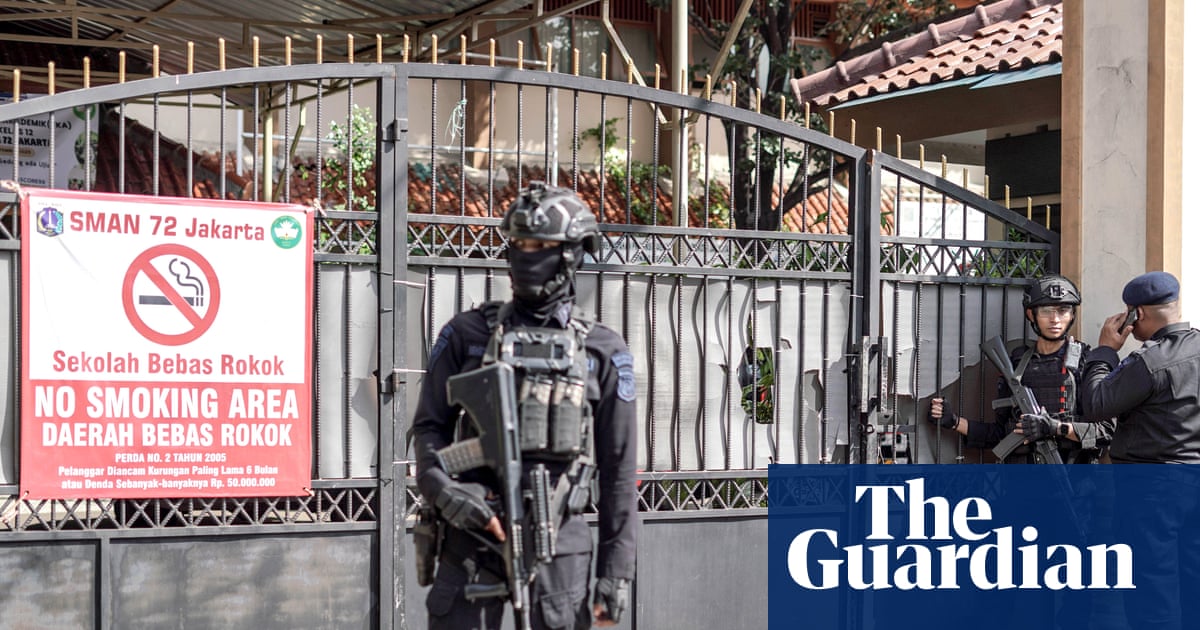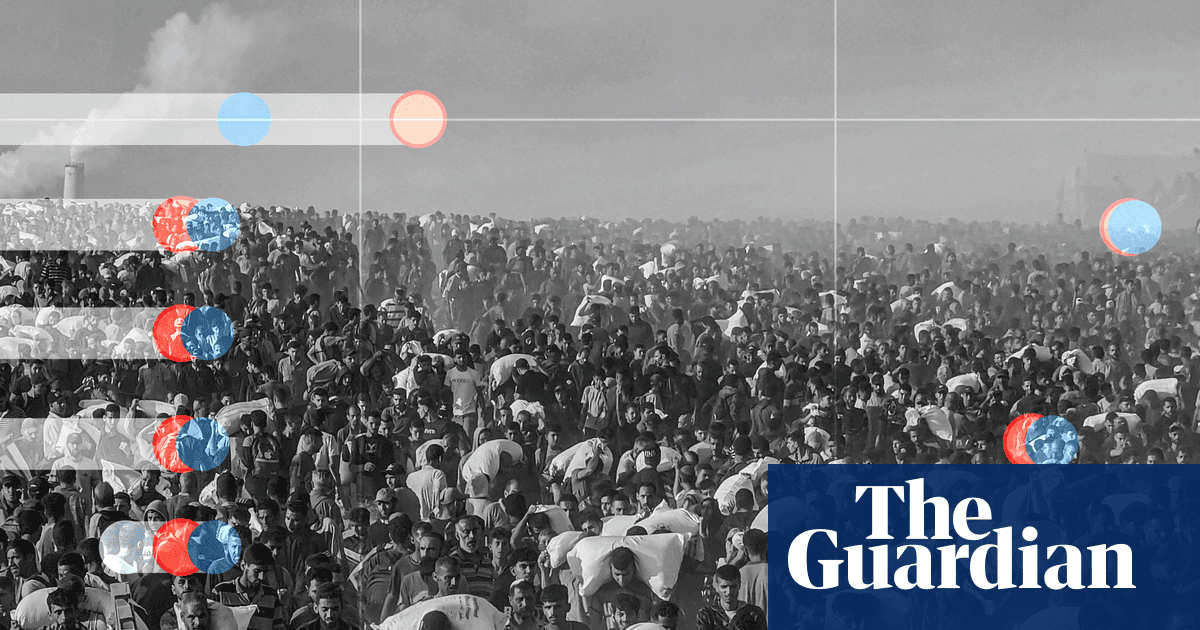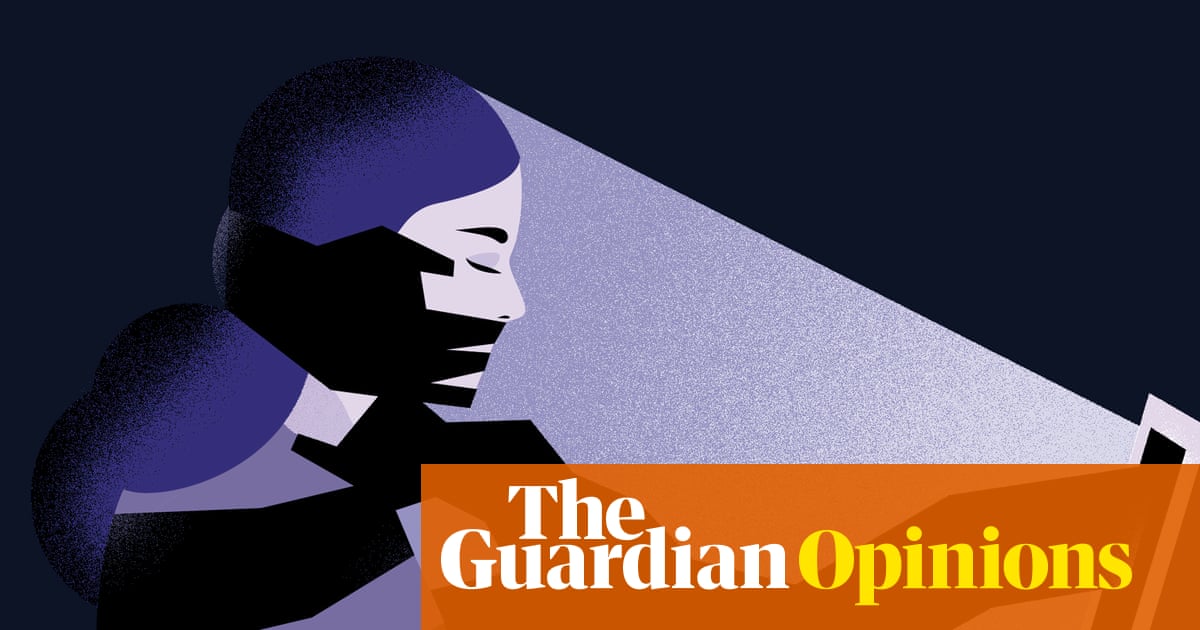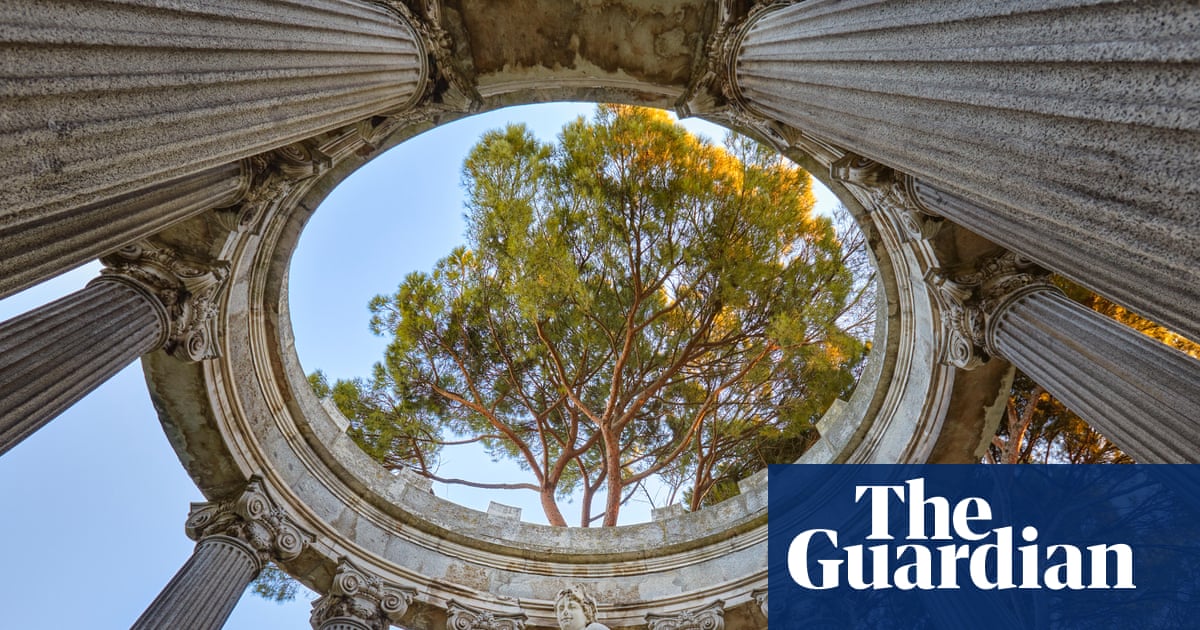Morning opening: Ukraine faces criticism over anti-corruption agencies reform

Jakub Krupa
Volodymyr Zelenskyy’s decision to approve a contentious bill weakening Ukraine’s anti-corruption agencies is facing growing criticism at home and abroad – just hours before another round of peace talks with Russia in Istanbul.
Last night, about 1,500 people protested against the reform in Kyiv, first urging him to veto the bill, and then opposing his decision to sign it into law. Large protests also took place in other cities.
As my colleague Luke Harding reported from Kyiv, in his nightly video address, Zelenskyy said he had spoken with the Nabu chief, Semen Kryvonos, and other top prosecutors.
Anti-corruption bodies, Zelenskyy said, would continue to function “but without any Russian influence. It all must be cleansed.”
“There must be more justice. Of course, Nabu and Sapo will continue their work,” he said. “It’s also important that the prosecutor general be committed to ensuring real accountability for those who break the law. This is what Ukraine truly needs.”
But international criticism of the reform could prove equally tricky, with EU commissioners and ministers from allied countries also coming out against the reform.
Enlargement commissioner Marta Kos said the EU was “seriously concerned” about the law, warning that “the dismantling of key safeguards protecting Nabu’s independence is a serious step back.”
“Independent bodies like Nabu & Sapo, are essential for ’s EU path. Rule of Law remains in the very center of EU accession negotiations,” she said.
She later added she had a “frank” conversation with the new Ukrainian prime minister, Yulia Svyrydenko.
EU defence commissioner Andrius Kubilius added:
“In war trust between the fighting nation and its leadership is more important than modern weapons – difficult to build and to keep, but easy to lose with one significant mistake by the leadership. Transparency & open European dialogue is the only way to repair the damaged trust.”
This morning the reactions continue, with France’s European minister Benjamin Haddad saying it was not too late for Ukraine to reverse its decision.
“It is not too late to go back on this,” he told France Inter radio. “We will be extremely vigilant on the subject.”
Elsewhere, I will be keeping an eye on the peace talks in Istanbul, the government reshuffle in Poland, and the meeting of France’s Emmanuel Macron and Germany’s Friedrich Merz in Berlin tonight.
I will bring you all key updates from across Europe today.
It’s Wednesday, 23 July 2025, it’s Jakub Krupa here, and this is Europe Live.
Good morning.
Key events Show key events only Please turn on JavaScript to use this feature
Ukrainian delegation meets with Turkey's Erdoğan before Russia talks
Andriy Yermak, head of president Zelenskyy’s office, said the Ukrainian delegation separately met with the Turkish president, Recep Tayip Erdoğan and his aides.
He says they “expressed our gratitude … for their consistent political and security support for Ukraine,” and for the Turkish offer to host negotiations.
“We discussed the security situation, regional stability challenges, and the prospects for further defence cooperation between our countries,” he said.
Ukraine ready for talks, but need Russia to be constructive, source says
A source in the Ukrainian delegation told the AFP that Ukraine was ready to agree a ceasefire with Russia during today’s talks in Istanbul, but would need Moscow to show up with a “constructive position” and “stop speaking in ultimatums.”
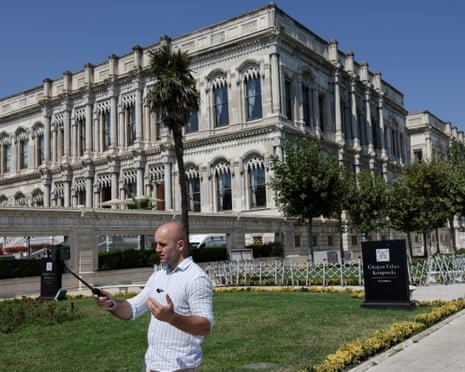
“Everything will depend on whether Russia stops speaking in ultimatums and takes a constructive position. This will determine whether results can be achieved at this meeting,” the source told AFP.
The Kremlin earlier said it expected the talks to be “very difficult,” with spokesperson Dmitry Peskov saying “no one expects an easy road.”
Germany expects Ukraine to continue fighting corruption, minister says
Germany is the latest European country to join in expressing concerns about Ukraine’s latest anti-corruption reform.
The country’s foreign minister Johann Wadephul said in a social media post that he expected “Ukraine to continue with determination its efforts in combating corruption.”
He that the restriction of the anti-corruption agencies’ independence could be an issue for Ukraine’s path to join the EU.
Separately, German newspaper Bild also reported that Wadephul spoke with his Ukrainian counterpart Andriy Sybiha about the reform.
Back to Russia-Ukraine talks, AFP just reported, quoting a source in the Turkish ministry of foreign affairs, that the negotiations will start at 4pm GMT, so that’s 5pm London time and 6pm CEST in large parts of Europe.
EU to continue talks with US on trade, tariffs
The EU has also confirmed that trade commissioner Maroš Šefčovič will speak with US commerce secretary Howard Lutnick this afternoon as they continue talks on the EU-US trade relations ahead of next month’s deadline for tariffs.

He will then debrief EU ambassadors on the conversation.
EU trade spokesperson Olof Gill said “the EU’s primary focus is on achieving a negotiated outcome with the US.”
But he added that the bloc was also preparing for other scenarios, including potential countermeasures:
“While our priority is negotiations, we continue in parallel to prepare for all outcomes including potential additional countermeasures.
To make our countermeasures clearer, simpler, and stronger, we will merge lists 1 & 2 into a single list (not entering into effect until 07/08) and submit this to [Member States] for approval.”
EU wants to work closely with Japan to 'counter economic coercion', develop trade ties

Jennifer Rankin
Separately, the EU has vowed to work more closely with Japan to “counter economic coercion and address unfair trade” at a summit intended to shore up the multilateral world order.
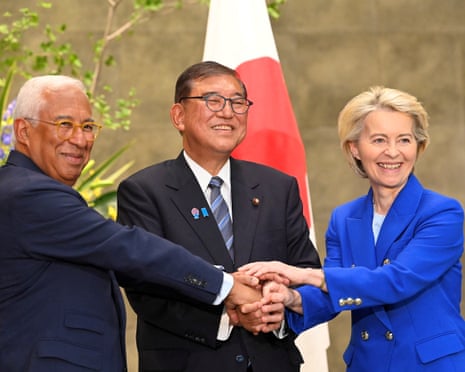
EU leaders Ursula von der Leyen and António Costa met Japan’s prime minister Shigeru Ishiba on Wednesday, where the two sides pledged to deepen their ties on trade and defence, citing their commitment to “a stable and predictable rules-based free and fair economic order”.
Von der Leyen said they had agreed to work “closely together to counter economic coercion and to address unfair trade practices”.
No names mentioned, but the EU has a long list of complaints about China and is currently embroiled in difficult trade talks with Donald Trump’s White House.
On Thursday von der Leyen and Costa are due in Beijing to meet President Xi Jinping for what is set to be a much frostier encounter.
Von der Leyen also congratulated Ishiba for negotiating a tariffs agreement with the US, but did not comment on the EU’s own negotiations with Washington.
Europe and Japan, she said, accounted for one-fifth of global GDP, with a market of 600 million people. Trade had increased by 20%, she said, since the entry into force of the EU-Japan trade agreement in 2019, but said more needed to be done to “unlock the full potential” of the deal, in areas such as government procurement and food and animal health standards.
She said the EU and Japan hoped to conclude this year negotiations to bring the Asian nation into the bloc’s Horizon research funding programme.
The two sides also agreed tighter cooperation on defence and security, including maritime, cyber, space and countering hybrid threats. Japan was the first country outside Europe to sign a defence and security pact with the EU.
The tone was reminiscent of the EU’s recent summits with Canada and the UK, a moment to shore up alliances with predictable friends in a turbulent world.
Back to Russia-Ukraine talks in Istanbul, the Ukrainian delegation is surely also getting close now as Zelenskyy’s top aide Andriy Yermak just posted his customarily visual-based comment on the latest events: a flag of Turkey.
I will keep an eye on these events to bring you all the latest.
'We all hear what society says,' Zelenskyy says as he promises 'action plan' on anti-corruption within two weeks
Back to Ukraine, the country’s president Volodymyr Zelenskyy met with anti-corruption and security officials pledging to draw up a plan to fight corruption within the next two weeks as he seeks to address the public frustration with the rushed reform in this area.
In a post on Telegram, he said:
“A very necessary meeting, a frank and useful conversation that really helps.
We all have a common enemy – the Russian occupiers, and the protection of the Ukrainian state presupposes sufficient strength of the law enforcement and anti-corruption systems, and therefore – a real sense of justice.”
Responding to last night’s protests, he said:
“We all hear what society says. We see what people expect from state institutions to ensure justice and the efficiency of each institution.
We discussed the necessary administrative and legislative decisions that will allow us to strengthen the work of each institution, resolve existing contradictions, and eliminate threats. Everyone will work together, and we will support them at the political level.”
The group will present a detailed plan on “what steps are needed and will be implemented to strengthen Ukraine and eliminate existing issues, provide more justice, and truly protect the interests of Ukrainian society” within the next two weeks, he added.
Polish PM Tusk reshuffles government to regain momentum after presidential defeat
Back to Warsaw, Polish PM Donald Tusk said the government needed to “get its act together” after losing the presidential election in June as he presented his new cabinet.
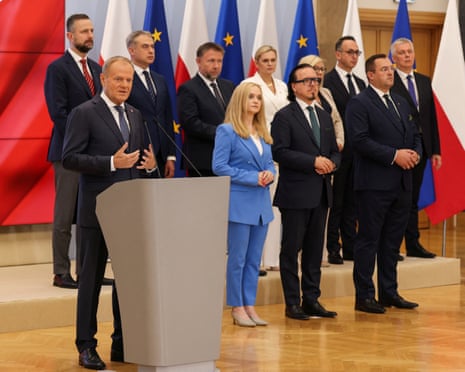
Among key changes, he tasked the finance minister, Andrzej Domański, with overseeing all economic departments in the government.
He also promoted foreign minister Radosław Sikorski, giving him the title of the deputy prime minister on top of his portfolio.
The total number of cabinet ministers was reduced from 26 to 21, with a number of senior posts also reshuffled.
The latest CBOS poll shows that just 32% of Poles support for the government, with 48% against. Tusk’s personal ratings are even lower, with 59% not happy with the prime minister, and 31% pleased with his work.
The latest polls show the opposition populist-right Law and Justice party, which led Poland 2015 to 2023, ahead of the largest coalition party, Civic Coalition, with the far-right Confederation party in the third place.
The next parliamentary election is expected in the autumn of 2027.
Russian delegation en route to Istanbul for talks with Ukraine
Meanwhile, a Russian delegation departed from Moscow for Turkey to hold a third round of peace negotiations with Ukraine, Reuters said, quoting Russian news agencies.
These talks are expected later today, and will bring you all the key updates.

Jakub Krupa
Elsewhere, Polish prime minister Donald Tusk is presenting his new cabinet in Warsaw after a major reshuffle in the aftermath of the lost presidential election in June.
I will keep monitoring this and bring you a longer update later.
If you want to get up to date on what’s going on Ukraine, check our daily briefing here:
Morning opening: Ukraine faces criticism over anti-corruption agencies reform

Jakub Krupa
Volodymyr Zelenskyy’s decision to approve a contentious bill weakening Ukraine’s anti-corruption agencies is facing growing criticism at home and abroad – just hours before another round of peace talks with Russia in Istanbul.
Last night, about 1,500 people protested against the reform in Kyiv, first urging him to veto the bill, and then opposing his decision to sign it into law. Large protests also took place in other cities.
As my colleague Luke Harding reported from Kyiv, in his nightly video address, Zelenskyy said he had spoken with the Nabu chief, Semen Kryvonos, and other top prosecutors.
Anti-corruption bodies, Zelenskyy said, would continue to function “but without any Russian influence. It all must be cleansed.”
“There must be more justice. Of course, Nabu and Sapo will continue their work,” he said. “It’s also important that the prosecutor general be committed to ensuring real accountability for those who break the law. This is what Ukraine truly needs.”
But international criticism of the reform could prove equally tricky, with EU commissioners and ministers from allied countries also coming out against the reform.
Enlargement commissioner Marta Kos said the EU was “seriously concerned” about the law, warning that “the dismantling of key safeguards protecting Nabu’s independence is a serious step back.”
“Independent bodies like Nabu & Sapo, are essential for ’s EU path. Rule of Law remains in the very center of EU accession negotiations,” she said.
She later added she had a “frank” conversation with the new Ukrainian prime minister, Yulia Svyrydenko.
EU defence commissioner Andrius Kubilius added:
“In war trust between the fighting nation and its leadership is more important than modern weapons – difficult to build and to keep, but easy to lose with one significant mistake by the leadership. Transparency & open European dialogue is the only way to repair the damaged trust.”
This morning the reactions continue, with France’s European minister Benjamin Haddad saying it was not too late for Ukraine to reverse its decision.
“It is not too late to go back on this,” he told France Inter radio. “We will be extremely vigilant on the subject.”
Elsewhere, I will be keeping an eye on the peace talks in Istanbul, the government reshuffle in Poland, and the meeting of France’s Emmanuel Macron and Germany’s Friedrich Merz in Berlin tonight.
I will bring you all key updates from across Europe today.
It’s Wednesday, 23 July 2025, it’s Jakub Krupa here, and this is Europe Live.
Good morning.

 3 months ago
52
3 months ago
52

